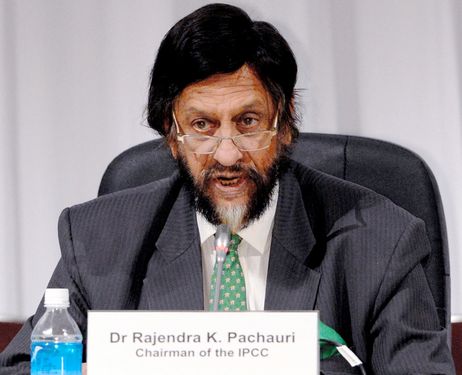March 31, 2014
Mundo Sustentável
 Toggle
Toggle

- Global Warming: Don't Confuse Us With The Facts
February 9, 2014 Global Warming: Don't Confuse Us with the FactsTimothy Birdnow http://world.einnews.com/article/189660595/x-S7UOW0wh4fBenE?n=1&code=F07q1UXf1Vm9sFJd Global warming is a planetary emergency, climate alarmists tell us. America...
- Aquecimento Global Pode Reduzir Recursos Hídricos No Sudoeste Dos Eua
http://ultimosegundo.ig.com.br/ciencia/meioambiente/2012-12-24/aquecimento-global-pode-reduzir-recursos-hidricos-no-sudoeste-dos-eua.htmlPrecipitações aumentarão no norte da Califórnia no inverno e na bacia que alimenta o rio Colorado, mas maior...
- Banco De Dados De Divulgações De Sustentabilidade Da Global Reporting Initiative - Rgi
[email protected] Reporting InitiativePO Box 100391001 EA AmsterdamThe NetherlandsTel: +31 (0) 20 531 00 00Fax: +31 (0) 20 531 00 31 Sustentabilidade on-line http://www.dci.com.br/Plano-de-Voo_-Emendas-pro-inovacao-7-403509.html...
- Workshop The Future Of Global Governance - Brazil In The Global Climate Change Regime No Dia 16 De Junho
The Future of Global Governance - Brazil in the Global Climate Change Regime09/06/2011Fonte: http://agencia.fapesp.br/14013 Agência FAPESP – O Workshop The Future of Global Governance - Brazil in the Global Climate Change Regime (O...
- Onu Convida Ministra Izabella A Integrar Painel Sobre Sustentabilidade Global
ONU convida ministra Izabella a integrar painel sobre sustentabilidade global 10/02/11 Fonte: http://www.mma.gov.br/sitio/index.php?ido=ascom.noticiaMMA&idEstrutura=8&codigo=6490 A ministra brasileira do Meio Ambiente, Izabella Teixeira, passará...
Mundo Sustentável
.
Aquecimento global reduz a produção de alimentos e agrava a fome...
U.N. climate panel: Global warming worsens food, hunger problems
http://ajw.asahi.com/article/sci_tech/environment/AJ201403310095

Rajendra Pachauri, chairman of Intergovernmental Panel on Climate Change, during a news conference in Yokohama on March 31 (Nobuhiro Shirai)
Pacifico Yokohama
YOKOHAMA--Global warming makes feeding the world harder and more expensive, a United Nations scientific panel said.
A warmer world will push food prices higher, trigger "hotspots of hunger" among the world's poorest people, and put the crunch on Western delights like fine wine and robust coffee, the Intergovernmental Panel on Climate Change concluded in a 32-volume report issued on March 31.
"We're facing the specter of reduced yields in some of the key crops that feed humanity," panel chairman Rajendra Pachauri said in press conference releasing the report.
Even though heat and carbon dioxide are often considered good for plants, the overall effect of various aspects of man-made warming is that it will reduce food production compared to a world without global warming, the report said.
The last time the panel reported on the effects of warming in 2007, it said it was too early to tell whether climate change would increase or decrease food production, and many skeptics talked of a greening world. But in the past several years the scientific literature has been overwhelming in showing that climate change hurts food production, said Chris Field of the Carnegie Institution of Science and lead author of the climate report.
But this doesn't mean in 50 years there will be less food grown. Thanks to the "green revolution" of improved agricultural techniques, crop production is growing about 10 percent per decade and climate change is likely to reduce yields by 1 percent a decade, so crop production will still go up, but not as fast, said David Lobell of Stanford University, one of the authors of the report's chapter on food problems.
Still, it is as if an anchor is weighing down the improvements to agriculture, Pachauri and Field said. Some places have seen crop yield increases drop from 2 percent a year to 1 percent or even plateau. And places like India, where 800 million people rely on rainfall not irrigation, the green revolution never improved crops much, Pachauri said.
Although changes in rainfall hurt, mostly the problem will be too much heat, Lobell said. "No place is immune," he said.
Food prices are likely to go up somewhere in a wide range of 3 percent to 84 percent by 2050 just because of climate change, the report said.
"In a world where a billion people are already going hungry, this makes it harder for more people to feed their families," said Tim Gore of Oxfam International, who wasn't part of this study.
While some crops may do slightly better, staples like wheat and corn will be hurt, the Nobel Prize-winning panel of scientists said. The report specifically mentions warming squeezing out crops in some of the richer coffee-growing areas in Central and South America, apple orchards in eastern Washington and cherry orchards in California.
And where you get your wine may be changing. Both quantity and quality of wine can be hurt in much of Europe, the United States and Australia, but Portugal and British Columbia in Canada may become better places for wine, the report said.
It's not just crops on land. A warmer and more acidic ocean is changing where fish live, making them harder to catch, and making it harder to feed people who rely on fish, Pachauri said.
loading...
- Global Warming: Don't Confuse Us With The Facts
February 9, 2014 Global Warming: Don't Confuse Us with the FactsTimothy Birdnow http://world.einnews.com/article/189660595/x-S7UOW0wh4fBenE?n=1&code=F07q1UXf1Vm9sFJd Global warming is a planetary emergency, climate alarmists tell us. America...
- Aquecimento Global Pode Reduzir Recursos Hídricos No Sudoeste Dos Eua
http://ultimosegundo.ig.com.br/ciencia/meioambiente/2012-12-24/aquecimento-global-pode-reduzir-recursos-hidricos-no-sudoeste-dos-eua.htmlPrecipitações aumentarão no norte da Califórnia no inverno e na bacia que alimenta o rio Colorado, mas maior...
- Banco De Dados De Divulgações De Sustentabilidade Da Global Reporting Initiative - Rgi
[email protected] Reporting InitiativePO Box 100391001 EA AmsterdamThe NetherlandsTel: +31 (0) 20 531 00 00Fax: +31 (0) 20 531 00 31 Sustentabilidade on-line http://www.dci.com.br/Plano-de-Voo_-Emendas-pro-inovacao-7-403509.html...
- Workshop The Future Of Global Governance - Brazil In The Global Climate Change Regime No Dia 16 De Junho
The Future of Global Governance - Brazil in the Global Climate Change Regime09/06/2011Fonte: http://agencia.fapesp.br/14013 Agência FAPESP – O Workshop The Future of Global Governance - Brazil in the Global Climate Change Regime (O...
- Onu Convida Ministra Izabella A Integrar Painel Sobre Sustentabilidade Global
ONU convida ministra Izabella a integrar painel sobre sustentabilidade global 10/02/11 Fonte: http://www.mma.gov.br/sitio/index.php?ido=ascom.noticiaMMA&idEstrutura=8&codigo=6490 A ministra brasileira do Meio Ambiente, Izabella Teixeira, passará...
.



